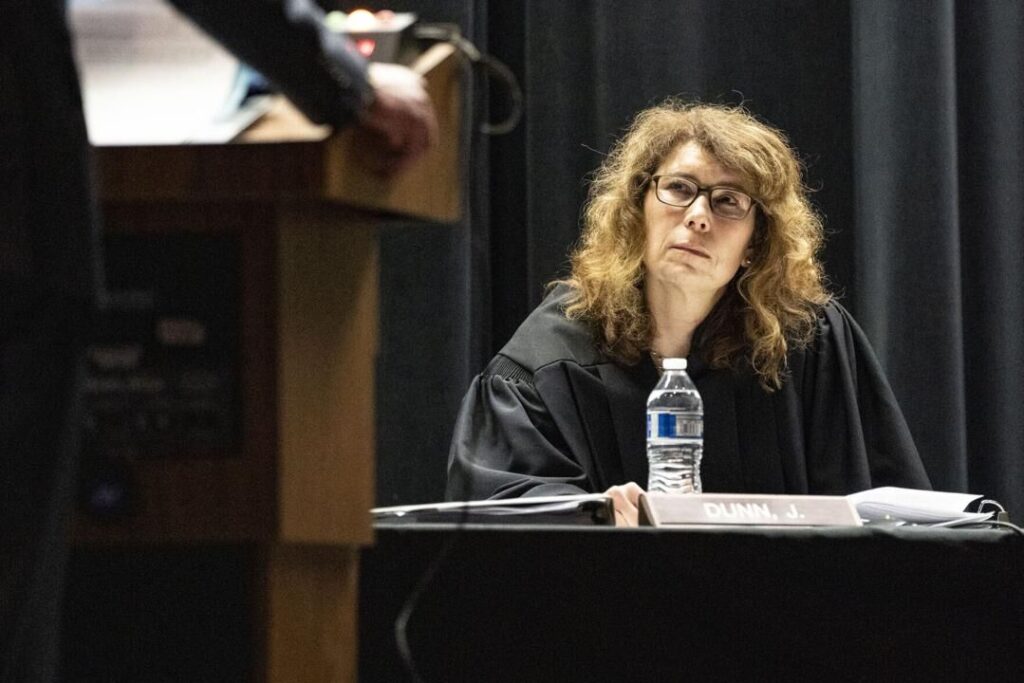Federal judge allows 2 inmates to sue over lack of access to sex offender treatment

Two men incarcerated for sex offenses, who have been moved around to various facilities where they were unable to participate in legally required treatment, may sue Colorado corrections officials for violating their constitutional rights, a federal judge ruled this week.
Gino Lerner and Brian Aigner filed suit last year, alleging the only thing preventing them from being paroled is their failure to complete sex offender treatment. However, according to Lerner and Aigner, the Colorado Department of Corrections is not abiding by its own policy for prioritizing detainees for treatment and is instead considering “the convenience of CDOC staff” in its decisions.
U.S. District Court Judge Nina Y. Wang agreed the men had credibly alleged the state is violating their right to due process. Without questioning the legitimacy of Colorado’s entire scheme for punishing sex offenses – laid out in the Sex Offender Lifetime Supervision Act of 1998 – Wang believed one specific aspect is problematic: SOLSA requires treatment as part of sex offender sentencing, but the state is not providing it.
“Without treatment, the conditions of SOLSA confinement are fundamentally and irretrievably altered: the inmate loses a segment of the sentence, which the General Assembly deemed necessary and appropriate to punishment, rehabilitation, and reentry into society at large,” she wrote in a May 23 order.
Wang also took the unusual step of authorizing pro bono legal representation for Lerner and Aigner, who have litigated their case by themselves from prison. Judges can make such a decision when, among other things, there is merit to a self-represented party’s claims.
Sara Neel, senior staff attorney with the ACLU of Colorado, applauded Wang’s decision for effectively recognizing a right to treatment for those convicted of sex crimes.
“It‘s up to the government to allocate sufficient money to this issue in order to meet the constitutional requirements,” she said.
Colorado lawmakers enacted SOLSA with an assumption that the “majority” of people convicted of sex offenses will continue to be dangerous unless they are treated and supervised, sometimes for the rest of their lives.
“There is no cure for sex offenders,” said then-Rep. Norma Anderson, R-Lakewood, a sentiment that more recent data suggest is incorrect.
Lerner was sentenced in 2003 to a term of 22 years to life under SOLSA, and Aigner was sentenced in 2019 to six years to life. Both men are eligible for parole, but they require treatment before they can leave custody. In their lawsuit, they allege CDOC transferred them to facilities that do not offer treatment.
The CDOC’s prioritization system, known as the Global Referral List, includes parole eligibility date and detainee behavior as criteria for treatment. But Lerner and Aigner contended their housing assignments, based on “convenience” for staff, amounted to an unlisted criterion barring them from getting on the list.
“Were it not for CDOC,” they wrote, “both Mr. Lerner and Mr. Aigner could have successfully progressed in treatment numerous years ago prior to their parole hearings and would remain actively engaged in treatment.”
They claimed CDOC officials are violating their due process rights by denying access to the treatment program. They asked for a court to immediately order them into treatment.
The state sought to dismiss the lawsuit, arguing Lerner and Aigner had no “liberty interest” in accessing treatment. Therefore, the Due Process Clause of the Constitution, which guards against deprivations of liberty, does not apply.
Initially, U.S. Magistrate Judge N. Reid Neureiter reviewed the case and recommended against dismissal. He noted Colorado law does not require detainees to have access to sex offender treatment prior to their parole eligibility date and that “budget constraints” are a legitimate reason to restrict access to such programming.
“However, this does not mean that unreasonable or excessive delay or denial of initial access,” he wrote, “can never constitute an unlawful deprivation.”
Based on the allegations, the state is improperly using a detainee’s housing assignment as grounds for denying access to treatment, which is not consistent with policy, Neureiter concluded.
The government objected to Neureiter’s recommendation. Wang, the district judge, agreed with Neureiter that budgetary or capacity limitations may well be legitimate reasons to deny Lerner and Aigner placement. At the same time, she observed the legislature has determined treatment to be a “necessary” component of sex offenders’ sentences.
Given that treatment is not simply an avenue to parole but is also part of the plaintiffs’ sentences, Wang determined the denial of access affects the men’s liberty and, potentially, violates their rights.
“Incarceration under SOLSA without the opportunity to access treatment alters the conditions of an inmate’s confinement in a way that can only set back his rehabilitation,” she wrote. “In that sense, the inmate has been subjected to a harsher sentence than was handed down by the sentencing judge.”
Last fiscal year, there were 2,693 inmates serving lifetime sentences under SOLSA, or 10% of the entire prison population. In a given month, approximately 350 people participated in treatment. As of June 30, 320 people were on the Global Referral List awaiting treatment.
The case is Lerner et al. v. Stancil et al.














